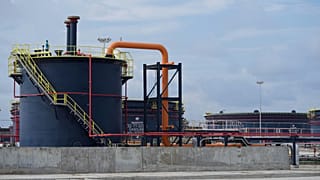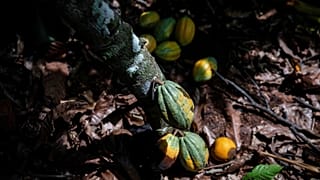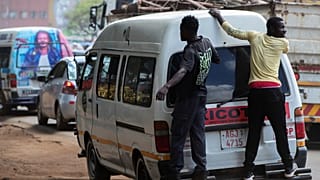Zimbabwe
Zimbabwe’s capital, Harare, is undergoing a rapid transformation which has seen the proliferation of small, informal shops, known locally as tuck shops.
While they have created employment for many of the country’s citizens who are outside of the labour market, neither the stores nor their staff pay tax.
In the process, they are pushing out big retailers and wholesalers, presenting a complex challenge for the government which wants to formalise the economy.
Economist, Farai Mutambanengwe, says this is obviously not a good development as a country typically would want its economy to consist mostly of large formalised enterprises.
“The moment you start getting informal businesses taking over the economy, first of all, obviously, it reduces the quality of your CBD. It reduces the value of the properties,” he says.
“But it also results in things like people no longer remitting taxes, people no longer using formal business channels, and ultimately, informality, dollarisation of the economy.”
All of these things, he says, are negative for the economy.
With most of the tuck shops selling illegal imported goods, the government is concerned about this trade bypassing the country’s tax system and therefore not bringing money into the state coffers.
As the number of informal tuckshops continues to rise, the evasion of taxes and regulations presents a thorn in the side of policymakers.
“There’s a proliferation of smuggled and counterfeit goods that are unfairly competing with local products, since the smuggled goods are not subject to taxation and import duties,” says Minister of Publicity, Information, and Broadcasting Services, Dr Jenfan Muswere.
As the ongoing drought continues to impact Zimbabwe’s economy, the finance minister in July warned that the 2024 budget deficit was forecast to be 1.3 per cent of gross domestic product.
Projected 2024 growth of the economy was at 2 per cent, down from 3.5 per cent forecast in November.













00:51
Uganda says it plans to cut external budget support by 84 per cent
01:55
One year into M23 control, residents are struggling to get by in DRC's eastern capital
01:51
In Ivory Coast, cocoa farmers have nobody to sell their produce to
00:50
Ghana's multidimensional poverty rate declines for third consecutive quarter
00:28
South Africa declares national disaster over floods and rains that have killed 30 people
00:50
Iran police officer killed as protests over cost of living enter 12th day